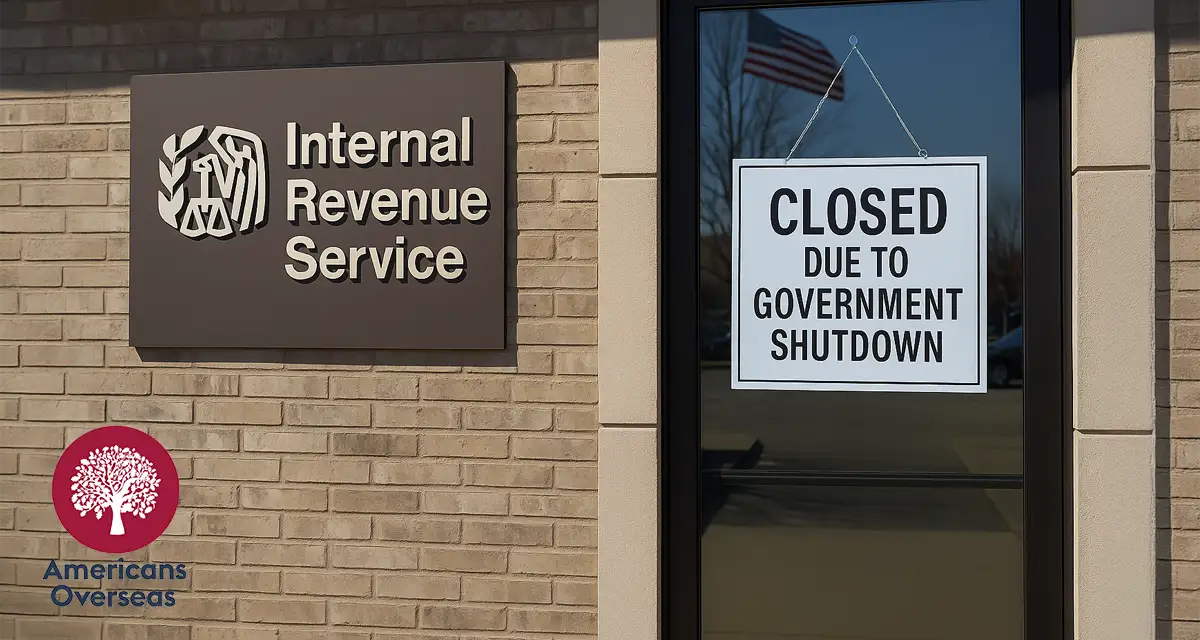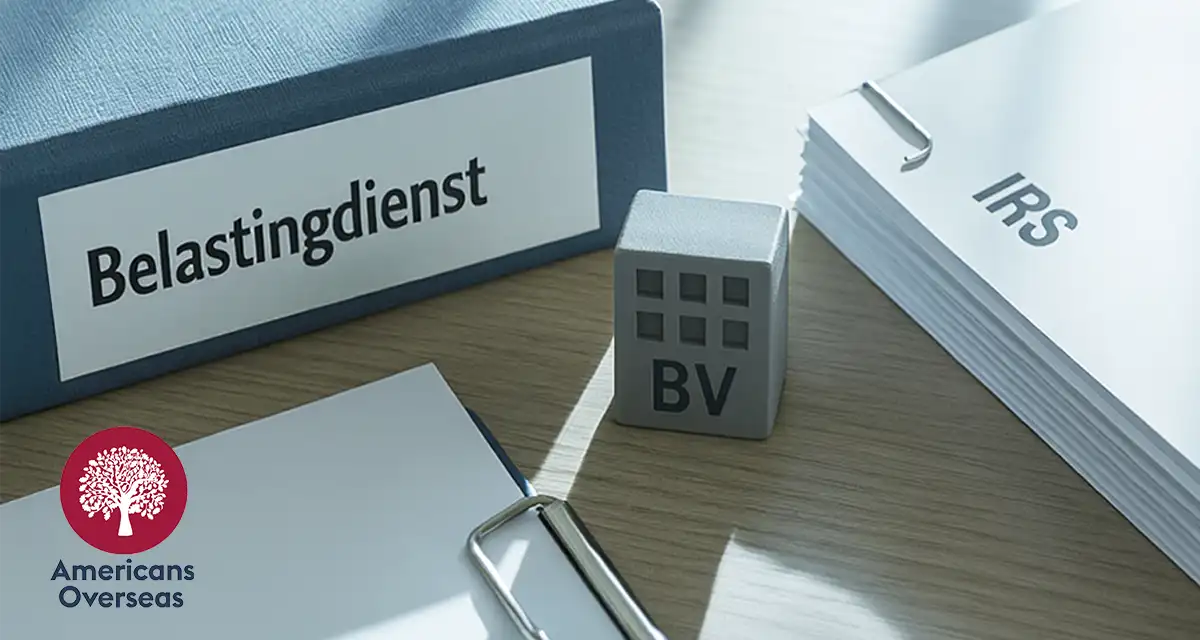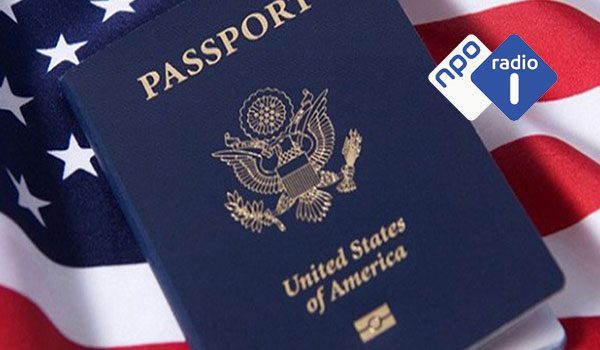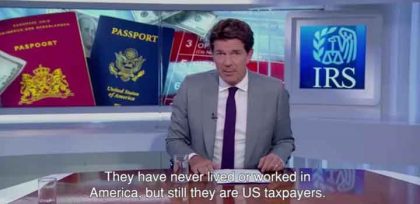
U.S. Tax for Dutch BVs: the Hidden Pitfall for Accidental Americans

You have a successful business in the Netherlands, a BV, and you think your taxes are in order. Then one day, you find out you’re also an American citizen — perhaps by birth or through a parent. Suddenly everything changes. For the U.S. tax authorities, you are taxable on your worldwide income, and your Dutch BV may look completely different in their eyes.
More and more Dutch citizens are discovering—often years later and unknowingly—that they also hold U.S. citizenship (so-called Accidental Americans).
You may have been born in the United States, or have a parent with a U.S. passport. You have never lived or worked there, yet legally you are still considered a U.S. citizen.
This means that under U.S. law, you are taxable on your worldwide income – including your Dutch earnings, assets, and your Dutch BV. Once you own a company or holding structure, an additional layer of complexity arises: the so-called PFIC rules.
Why your Dutch BV may be a PFIC
In the Netherlands, a BV is a normal legal structure for entrepreneurs.
But under U.S. tax law, the same BV is viewed as a foreign corporation.
If that BV earns mainly passive income — such as interest, dividends, or investment returns — it may be classified by the IRS as a Passive Foreign Investment Company (PFIC).
That classification can have severe financial consequences.
A PFIC is treated not as an active business, but as an investment fund. Even if you use your BV for retirement savings or long-term investments, the IRS may apply punitive taxation.
In addition, complex reporting rules apply, including the Form 8621 filing requirement. Gains may be taxed at unfavorable rates, and double taxation can arise because the Netherlands and the U.S. treat company income differently.
Not every Dutch BV is automatically a PFIC
This is where many people — and even advisors — go wrong. Not every Dutch BV qualifies as a PFIC. U.S. tax law includes exceptions that can make a crucial difference.
1. The “look-through” rule (25% rule)
If your Dutch holding BV owns at least 25% of a subsidiary, the IRS “looks through” the structure.
For the PFIC test, it considers the income of the underlying operating company, not the holding itself.
If that subsidiary has employees, turnover, and operational profits, the overall structure is usually not classified as a PFIC.
2. The CFC overlap (Controlled Foreign Corporation)
If you, as a U.S. person, own at least 10% of a foreign company and U.S. shareholders together own more than 50%, the company may instead be a CFC.
In that case, CFC rules override PFIC rules — and this is often more favorable, as CFC taxation is easier to manage and less punitive than PFIC taxation.
3. Active business activities
A holding BV that employs staff, provides services, or participates in active businesses may also fall outside the PFIC definition.
It’s essential to clearly document where your income originates.
What this means for Accidental Americans
If your Dutch BV mainly receives dividends or investment income, the IRS will likely classify it as a PFIC.
But if your BV is actively conducting business, that classification can change completely.
Proper assessment requires expertise in both Dutch corporate law and U.S. international tax rules.
In practice, mistakes occur when Dutch advisors focus on the legal structure, while the IRS looks at the economic substance of the income.
Five key points to consider
-
Have your BV reviewed to determine if it qualifies as a PFIC under U.S. law.
-
Check if you qualify for the look-through rule or CFC status.
-
Confirm whether your Dutch taxes (Box 2 or Box 3) can be credited in the U.S.
-
Be aware of reporting obligations like Form 8621, FBAR, and FATCA.
-
Consult a specialist who understands both Dutch and U.S. tax systems.
Why specialized advice is essential
Accidental Americans are in a unique and often unfair situation.
You may never have chosen your U.S. citizenship, but you’re still subject to rules designed for international investors.
Americans Overseas helps Accidental Americans who own or manage Dutch companies to gain clarity about their U.S. tax position.
We connect you with both U.S. and Dutch tax professionals who understand how PFIC and CFC rules apply in practice.
With the right advice, you can adjust your structure, prevent double taxation, and continue doing business with peace of mind.
Want to know whether your Dutch BV is subject to U.S. tax or PFIC rules? Contact Americans Overseas for an initial assessment of your situation.
We’ll help you take the right steps- so you can remain compliant without unnecessary tax burdens.
Get informed with Americans Overseas
We, the founders of Americans Overseas, were born in the Netherlands and received our American citizenship through our (American) mother.
When we first learned about the U.S.–Netherlands tax treaty around 2013, we felt disbelief (“this can’t be true”), anger (“how can they do this?”), fear (“will I get fined or have problems?”), and panic (“what should I do?”).
Unfortunately, it is true that there is a U.S. tax obligation for Dutch citizens who acquired American nationality by birth. There was no information from local authorities, the U.S. consulate referred us to the IRS, and the IRS itself was impenetrable.
That is why we started this initiative: to help others with reliable information, to prevent unnecessary panic, and to offer free, no‑obligation assistance. When needed, we can connect you with a network of affordable professionals (accountants) who can help you meet your U.S. tax obligations.
Contact us for more information






